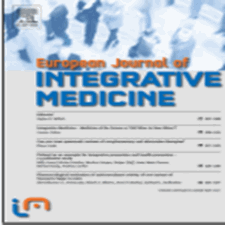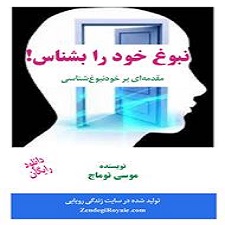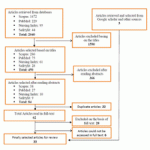توضیحات
ABSTRACT
Depression is a common reason for patients to consult homeopaths. This review aims to assess the efficacy, effectiveness and safety of homeopathy in depression. Methods: Thirty databases/sources used to identify studies reporting on homeopathy in depression, published between 1982 and 2016. Studies were assessed for their risk of bias, model validity, aspect of homeopathy and comparator. Results: Eighteen studies assessing homeopathy in depression were identified. Two double-blind placebo-controlled trials of homeopathic medicinal products (HMPs) for depression were identified. The first trial (N=91) with high risk of bias found HMPs were non-inferior to fluoxetine at 4 (p=0.654) and 8 weeks (p=0.965); whereas the second trial (N=133), with low risk of bias, found HMPs was comparable to fluoxetine (p=0.082) and superior to placebo (p<0.005) at 6 weeks. The remaining research had unclear/high risk of bias. A non-placebo- ontrolled RCT found standardised treatment by homeopaths comparable to fluvoxamine; a cohort study of patients receiving treatment provided by GPs practising homeopathy reported significantly lower consumption of psychotropic drugs and improved depression; and patient-reported outcomes showed at least moderate improvement in 10 of 12 uncontrolled studies. Fourteen titles provided safety data. All adverse events were mild or moderate, and transient. No evidence suggested treatment was unsafe. Conclusions: Limited evidence from two placebo-controlled double-blinded trials suggests HMPs might be comparable to antidepressants and superior to placebo in depression, and patients treated by homeopaths report improvement in depression. Overall, the evidence gives a potentially promising risk benefit ratio. There is a need for additional high quality studies.
INTRODUCTION
Depression is the third most common burden of disease worldwide and is expected to become the leading burden of disease by 2030 . The National Institute for Health and Clinical Excellence primarily recommends non-medical interventions such as cognitive behavioural therapy in subthreshold, mild and moderate depression as the first line treatment . If these interventions are ineffective or the depression is severe, antidepressant drugs are recommended. These treatment options help some but not all patients, there is concern about the overuse of psychotropic drugs, and insufficient alternatives. Some patients seek complementary and alternative medicine (CAM) treatment options, and depression and other mental health problems are among the most common reasons why patients seek homeopathy.
چکیده
افسردگی یک دلیل معمول برای بیماران برای مشورت با هومیوپاتی است. این بررسی با هدف ارزیابی اثربخشی، اثربخشی و ایمنی هومیوپاتی در افسردگی انجام شده است. روش ها: 30 پایگاه داده / منابع مورد استفاده برای شناسایی مطالعات گزارش شده در مورد هومیوپاتی در افسردگی، بین سال های 1982 تا 2016 منتشر شده است. مطالعات برای خطر ابتلا به بی عدالتی، اعتبار مدل، جنبه هومیوپاتی و مقایسه آن مورد ارزیابی قرار گرفتند. يافته ها: هشتاد مطالعه در زمينه هوميوپاتي در افسردگي شناسايي شد. دو آزمایش دو سوکور کنترل شده دارونما از داروهای هومیوپاتی (HMPs) برای افسردگی شناسایی شدند. اولین آزمایش (N = 91) با خطر ابتلا به افسردگی، HMPs در مقایسه با فلوکستین در 4 (p = 0.654) و 8 هفته (p = 0.965) در مقیاس ناکافی نبود. در حالی که آزمایش دوم (N = 133) با ریسک کم توجهی، HMP ها در مقایسه با فلوکستین (0.028 = p) و در مدت 6 هفته برتر از پلاسبو (005 / 0p <) بود. تحقیقات باقیمانده خطر نامطلوب / خطر بالا را داشتند. RCT غیر کنترل شده با دارونما با درمان هومیوپاتی مشابه با فلووکسامین درمان استاندارد شده را یافت. یک مطالعه کوهورت در مورد بیماران دریافت کننده درمان توسط پزشکان عمومی که هومیوپاتی داشتند، مصرف داروهای روانگردان و بهبود افسردگی را به میزان قابل توجهی کاهش دادند. و نتایج گزارش شده توسط بیمار حداقل 10 برابر از 12 مطالعه غیرقابل کنترل را بهبود می بخشد. چهارده عنوان اطلاعات ایمنی را ارائه داد. تمام حوادث ناگوار خفیف یا متوسط بوده و گذرا بوده است. هیچ شواهدی نشان نداد درمان درمان نامناسب بود. نتيجه گيري: شواهد محدود از دو کارآزمايي دو سوکور تحت کنترل دارونما نشان مي دهد که HMP ها ممکن است با داروهاي ضد افسردگي قابل مقايسه و افسردگي نسبت به دارونما باشند و بيماران درمان شده توسط هوميوپاتي بهبودي در افسردگي را گزارش کنند. به طور کلی، شواهد نشان می دهد نسبت سود بالقوه امیدوار کننده سود. نیاز به مطالعات با کیفیت بالا وجود دارد.
مقدمه
افسردگی سومین شایع ترین بیماری در سراسر جهان است و انتظار می رود که تا سال 2030 بار منجر به بیماری شود. موسسه ملی سلامت و تعالی بالینی عمدتا توصیه های مداخلات غیر پزشکی مانند درمان شناختی رفتاری در زیرفشار، افسردگی خفیف و متوسط را به عنوان خط اول درمان می کند. اگر این مداخلات بی اثر باشد یا افسردگی شدید باشد، داروهای ضد افسردگی توصیه می شود. این گزینه های درمان به برخی، اما نه همه بیماران کمک می کند، نگرانی در مورد استفاده بیش از حد از داروهای روانگردان و گزینه های ناکافی وجود دارد. برخی از بیماران به گزینه های درمان مکمل و جایگزین (CAM) میپردازند و افسردگی و سایر مشکلات روانپزشکی یکی از رایج ترین دلایل این است که بیماران به دنبال هومیوپاتی هستند.
Year: 2018
Publisher : ELSEVIER
By : Petter Viksveen, Philippa Fibert, Clare Relton
File Information: English Language/ 31Page / size: 531 KB
سال : 1397
ناشر : ELSEVIER
کاری از : پتر ویکسون، فیلیپا فیبر، کلر رلتون
اطلاعات فایل : زبان انگلیسی / 31صفحه / حجم : KB 531





![Abzare-Movafaghiat.[taliem.ir]](https://taliem.ir/wp-content/uploads/Abzare-Movafaghiat.taliem.ir_-1.jpg)
![Sensation Seeking and Internet Dependence of[taliem.ir]](https://taliem.ir/wp-content/uploads/Sensation-Seeking-and-Internet-Dependence-oftaliem.ir_.jpg)


نقد و بررسیها
هنوز بررسیای ثبت نشده است.